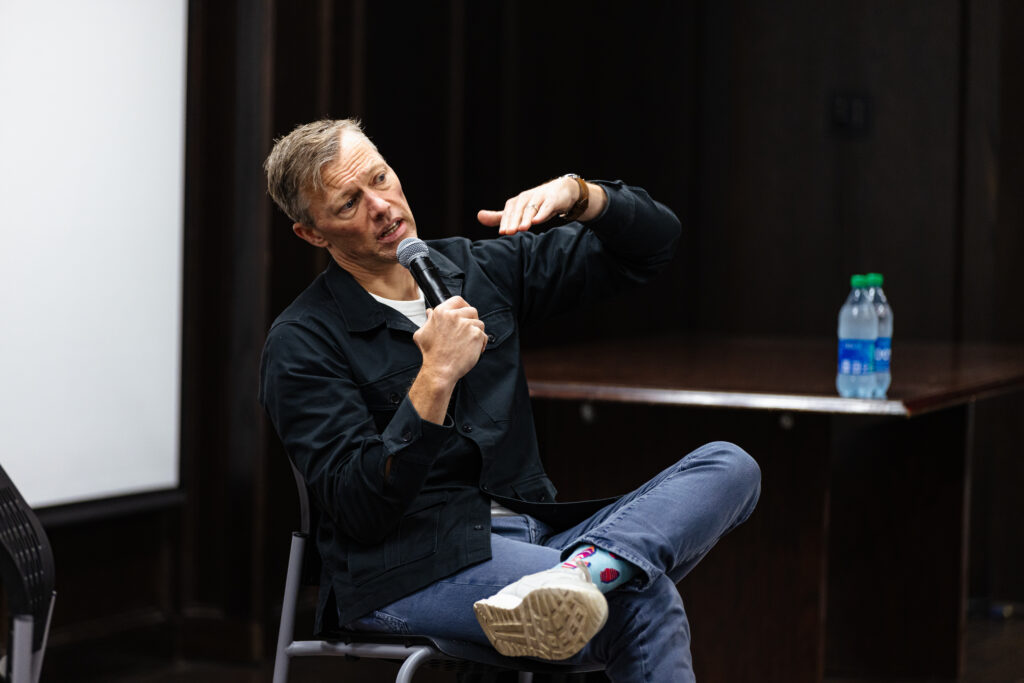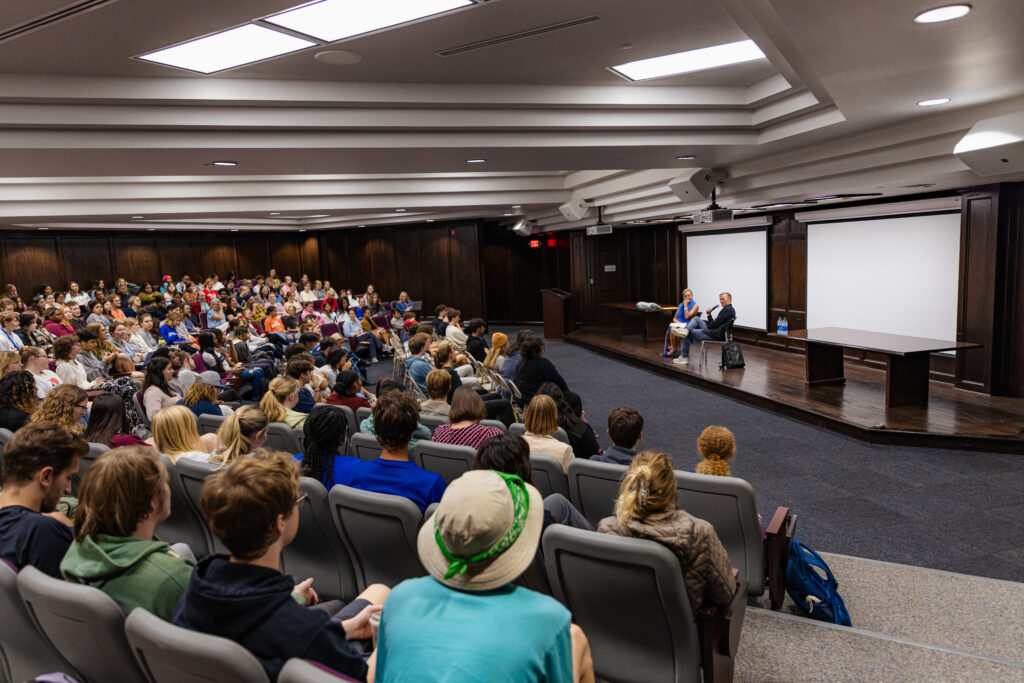
(Photo Courtesy of Oklahoma City University)

On September 12, Oklahoma City University hosted author, sociologist, and professor Matthew Desmond as their distinguished speaker in accordance with the Martha Jean Lemon Speaker Series. The Speaker Series features annual events to provide academic enrichment to the OCU community and beyond.
Desmond, a Pulitzer Prize winner for Evicted: Poverty and Profit in the American City, was invited to speak on his most recent book, Poverty, by America. This book utilizes history, research, and reporting to make an argument attesting to why poverty exists and persists in America.
At 1pm, Desmond held an exclusive presentation for current students. Mediated by Dean Amy Cataldi, this session gave current students an insightful look through Desmond’s work and the opportunity to have their burning questions answered.
First-year students on campus were encouraged to attend the session as a part of the First Year Experience program, while Honors Students were also expected to have read the book prior. Students asked a variety of questions ranging from asking Desmond’s opinion on their personal experiences, to Oklahoma-specific political questions, and information on poverty as a concept.
Desmond spoke about his personal experiences growing up beneath the poverty line in Winslow, Arizona, and how that experience shaped his view of the modern world. He remarked on how poverty is made of a multitude of experiences, and how his job as a sociologist is to make those types of personal problems political. Desmond specifically looks at why society reacts to poverty in the way they do.
Desmond commented on the importance of paying taxes to support infrastructure and community. He answered questions on the normalization of opulence in America and how it contributes to the problem of poverty, saying “You can’t trade in sneakers for dental care,” amongst other comparisons to the ease of owning material goods as opposed to necessities. Desmond spoke on minimum wage, the link between systemic racism and poverty, and how education plays a significant role in the conversation.
To close out the session, Desmond answered the question “What can we do now as college students to help combat this issue [of poverty]?”
Desmond listed attainable steps for students to take if they wish to be more involved.
First, flex your influence where you have it. Desmond remarked on how college students have historically played large roles in major social movements including environmental concerns and the Civil Rights movement and encourages students to use that leverage to create change.
Second, he recommends that students “Vote with your wallet or your university’s wallet.” Desmond elaborates, saying to be conscious of where you spend your money and how your purchases can have negative effects, like with fast fashion. Similarly, he suggested students research where the university spends money and make sure those recipients support the ambitions the students have.
Third, Desmond recommended students talk with their parents about taxes. He said the sooner we start thinking about the productivity that can come from taxes, the better off we will be as a society.
Fourth is to fight segregation in your community. Desmond mentions specifically advocating for affordable housing in your area and better zoning practices.
Finally, join the antipoverty movement, or start a chapter of it on campus!
Desmond’s conversation with the students was just under an hour long but chock-full of informative information.
Desmond also gave a presentation open to the public at 7 pm, with a book signing to follow.


Leave a Reply